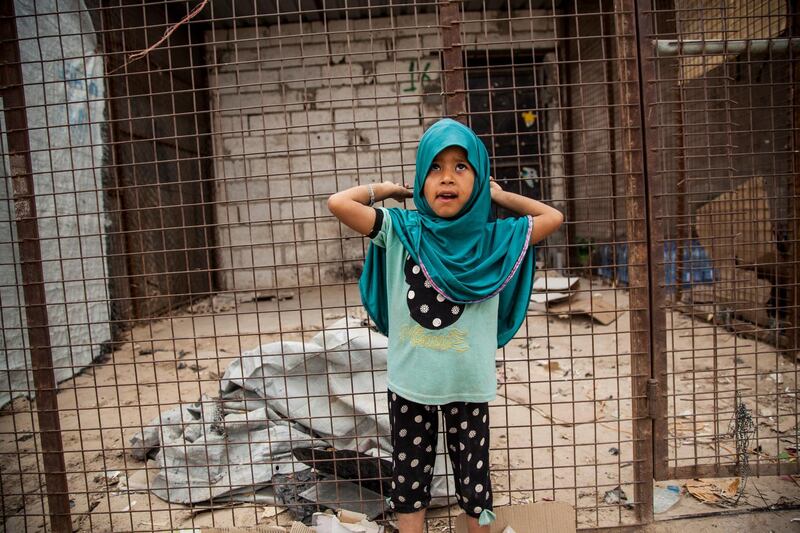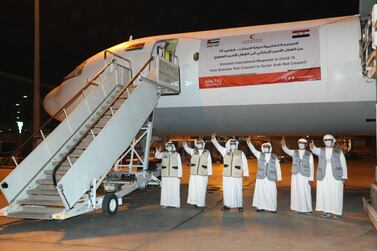The UN on Tuesday warned of a fast-spreading coronavirus outbreak at a sprawling camp in northeast Syria that houses tens of thousands of refugees, including families and supporters of ISIS.
UN spokesman Stephane Dujarric told reporters that 39 Covid-19 cases had been reported and four residents had died at the facility, where cramped, dirty conditions and poor sanitation offered fertile ground to the virus.
“We are concerned about the situation of the estimated 60,000 people who remain living in Al Hol camp in the northeast,” said Mr Dujarric.
“Humanitarian organisations are supporting contact tracing, recognising that a wider outbreak could be devastating due to the already vulnerable state of the families in the camp.”
The Kurdish officials that administer Al Hol camp over the weekend said 19 detainees who had tested positive for the virus were in isolation.
Jaber Mustafa, an administrator at the crowded camp, said staff were struggling against the spread of the virus after grappling with a wave of violence and crime that had left dozens dead in recent months.
"Most of the residents are children and women who move a lot between tents," Mr Mustafa said of his concerns for contagion, adding that the security situation had complicated access for aid workers.
The main US-backed Kurdish-led force that manages Al Hol in late March launched a five-day sweep of the camp, backed by US forces. More than 125 suspects were arrested and security has since improved.
Syria received its first doses of the #COVID19Vaccine, bringing much needed support to the country where IRC data showed a surge of COVID cases.
— IRC - International Rescue Committee (@RESCUEorg) April 30, 2021
For example, in April alone, #Syria had 4,000+ recorded cases—half the total cases from 2020. More in @AP: https://t.co/ZWcEoo1K9E
Most of Al Hol’s residents are Iraqis and Syrians, but some 10,000 foreigners from 57 other countries are also resident in the camp’s high-security annexe.
Many residents are die-hard ISIS supporters and foreign governments are loath to repatriate citizens who travelled to join ISIS after the group declared its so-called caliphate in 2014.
Children make up more than half the residents, Mr Dujarric noted.
“No child should grow up in a place like Al Hol,” he said.
“We continue to stress that long-term durable solutions are needed for all the residents of the camp, whether they are Syrian, Iraqi or from any other country.”








